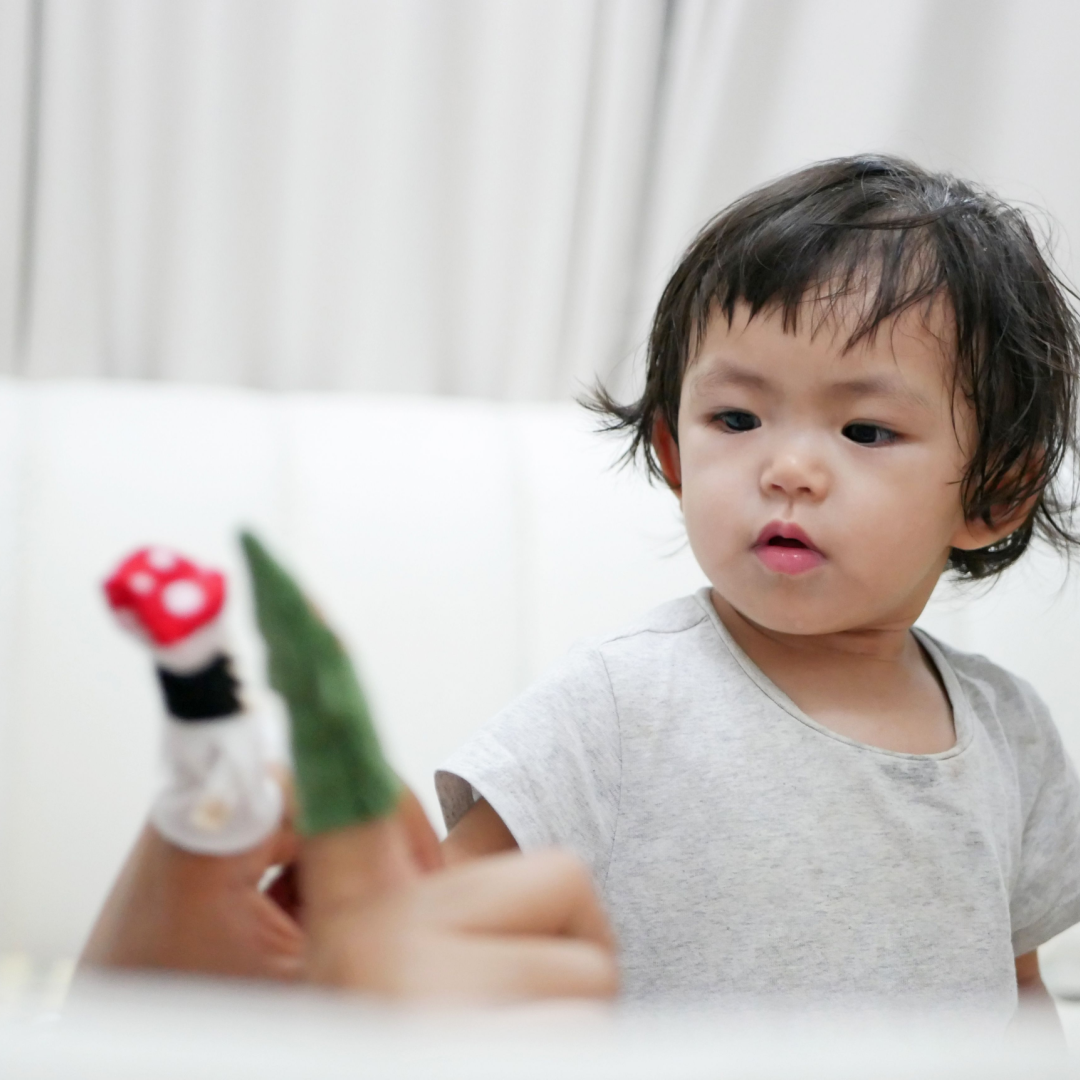Ways to support your baby’s speech development
Speech and language development is an important part of your child’s overall development. Even from birth, babies are communicating in the best way they know how. Your baby will learn to talk as a result of the sounds they hear from you and other people.
Remember, their brain is ‘hard wired’ to look, listen and copy you, so don’t be shy!

10 ways to support your baby’s speech development
There are lots of ways you can support your baby’s speech development. What’s important is to talk with them as if they can already talk themselves and to use as many different words as you can.
- Be sensitive to the cues and signals your baby gives when they want to connect with you. Typically, babies become more excited and animated when they’re listening.
- Pause a little after saying something to your little one and wait for them to respond. This is called ‘serve and return’ and it’s a great way for babies to learn that communication isn’t one sided.
- Think about the way you talk yourself. If you’re normally a fast talker, try to slow down a little when you’re chatting to your baby.
- Play peek-a-boo and other games with them. Nursery rhymes, singing and making up little games are all brilliant ways to support speech development.
- Read to your baby every day. Look for those windows of time when you can just sit and look at a book together and include story time in your pre-settling routine. Young babies like books with bright colours and familiar images.
- Involve your baby in everyday conversations. They’ll want to be part of what’s going on and will show you they’re interested.
- Let your baby start conversations and follow their lead.
- Use facial expressions to show your baby you’re interested in what they have to say.
- Play with your baby and just have fun. Try not to focus on the educational outcome of what you’re doing, just be a kid yourself!
- Try new things when you’re playing with your baby. They’ll get excited when their play is expanded.
Is it okay to use baby talk when I talk to my baby?
Baby talk will be a valuable way for your baby to learn about speech and language. Every culture has their own version of ‘Babyese’ that’s normal for them. Baby talk (from adults) is a language all its own and typically involves a high pitched voice, drawn out vowels and an upward lilt to the voice. It also has a sing-song sound to it.
Baby talk is fine and in fact, good for babies as long as it’s balanced with other ‘normal’ pitch and tone speech. As your baby starts making their own sounds, use proper sounds and words so they learn what’s involved. Most parents know when to stop using baby talk and appreciate it as a joyful part of communicating with their baby in the early months.
Typical speech development in children
Though there is a wide range of normal, most children follow a typical pattern of language development.
- From birth until around 3 months of age – babies cry and coo.
- From around 4-6 months- babies make sounds which are more distinct. They will generally learn how to chuckle, make high pitched squeals, grunt and sigh. They also make louder sounds and the pitch of their voice changes.
- Between 6-9 months - babies can make more distinct syllable sounds. They can also imitate tones and what they’re hearing from other people.
- By around 12 months – Babies start to say their first words. They also practice their new skills and may repeat the same sounds over and over.
Children learn to talk at a time that is right for them. There is a wide range of what is considered normal with speech development.
When do I need to get help for my baby’s speech development?
It’s important to have your baby checked if you’re ever concerned, and also to trust your own judgment.
Have them checked if they’re showing any of these signs:
- By 6 months, if they’re not starting to babble.
- By 9 months, if they’re not using two part babbles e.g., baba, dada.
- By 12 months, if they’re not using sounds and words.
- If at any age, they’re not responding to sounds.
A good place to start is your GP or Child Health Nurse. They may recommend your baby’s hearing is assessed by an audiologist. Check your baby had their newborn hearing test – the results will be in their personal health record.
Written for babyU by Jane Barry, Midwife and Child Health Nurse, August 2023.